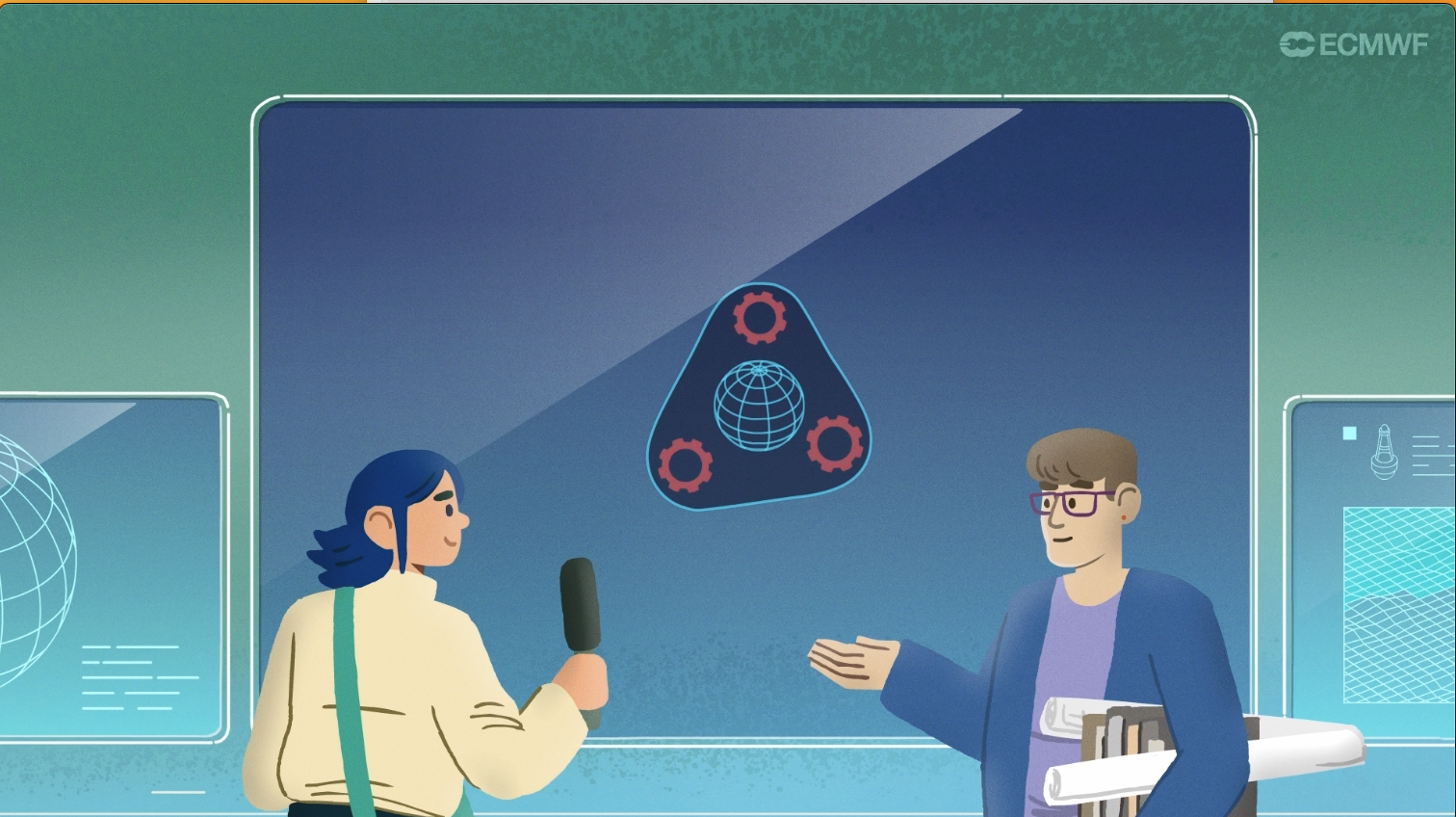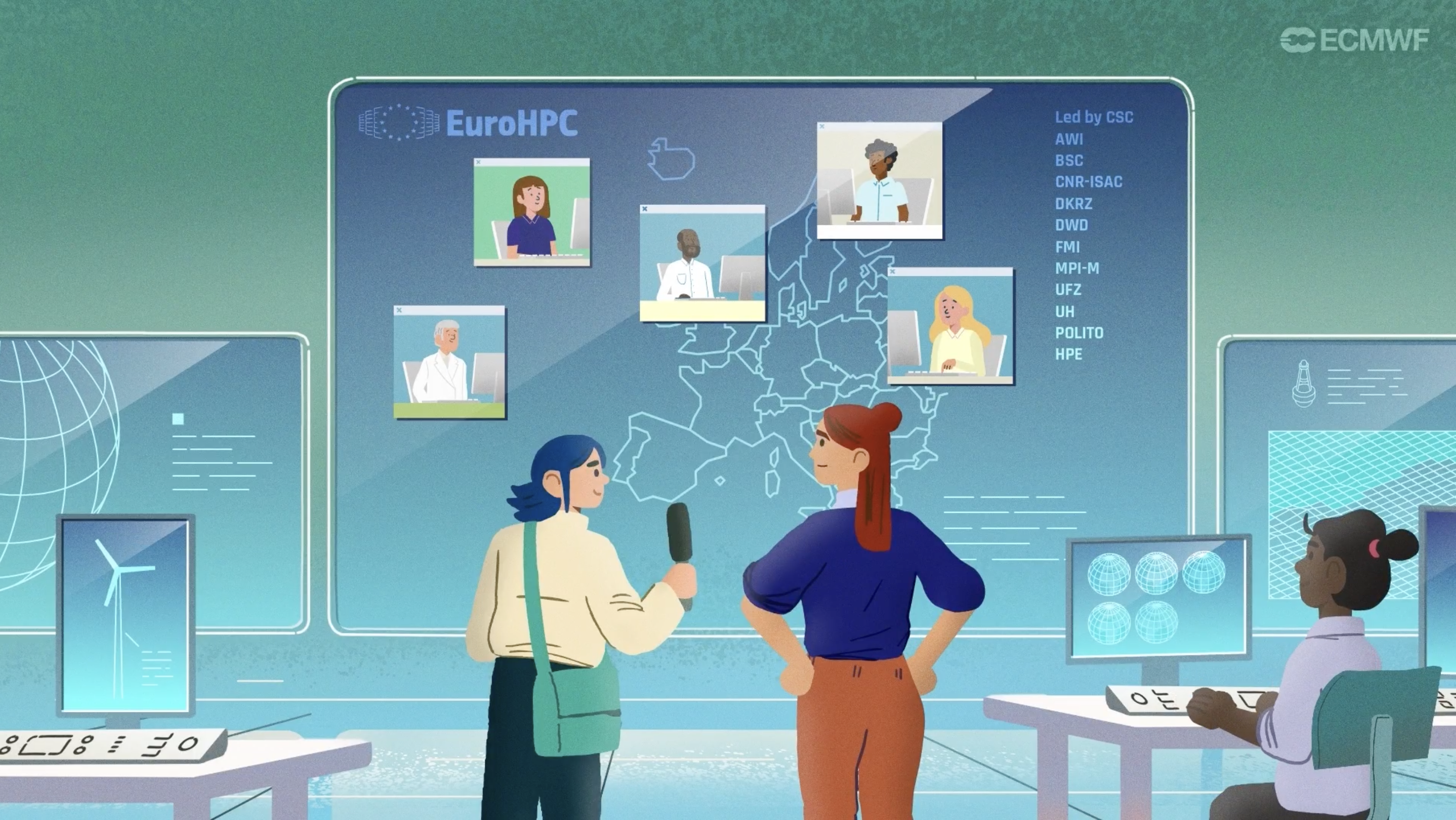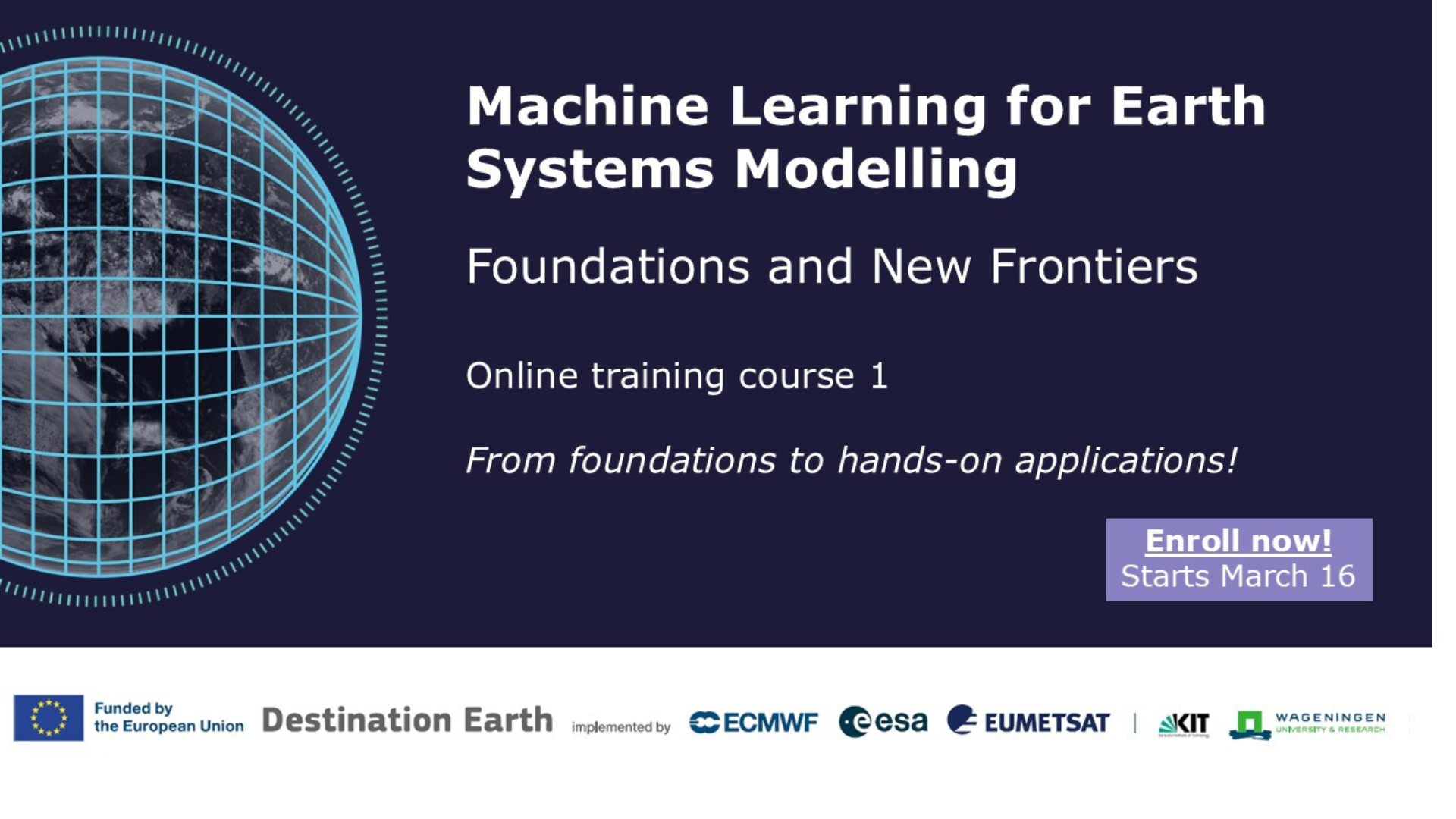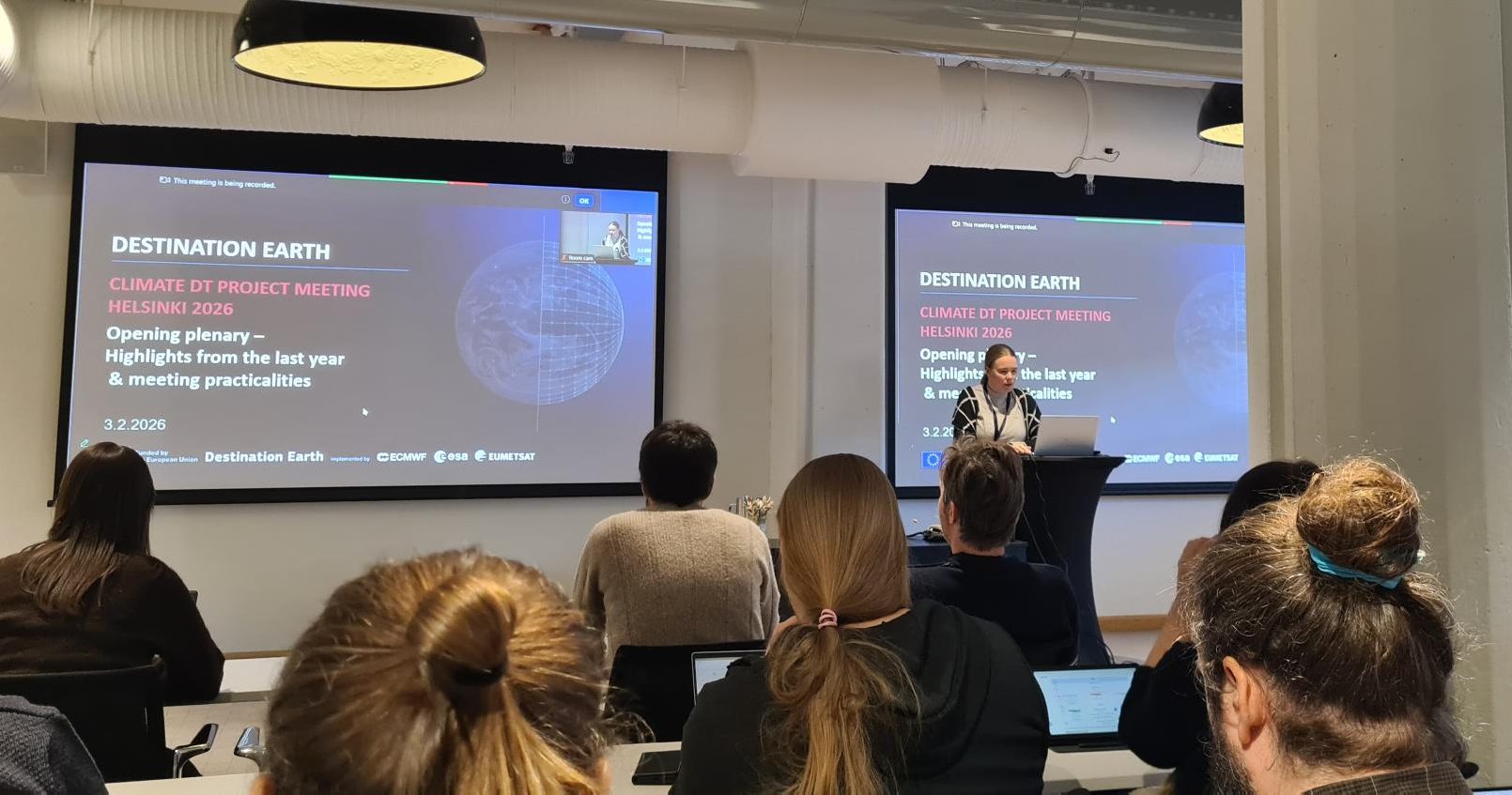
In the third Episode of the Destination Earth animation series, Rosa continues her journey into the heart of the DestinE initiative. Following her deep dives into Artificial Intelligence and the Climate Change Adaptation Digital Twin in earlier episodes, she now explores one of the most critical components of the system: the Digital Twin Engine, which is the powerful software infrastructure at the core of DestinE.
When Rosa meets a solar energy manager searching for precise and tailored climate data, she uncovers how the Digital Twin Engine enables users to harness the unprecedented outputs produced by the digital twins.
Working behind the scenes, the Digital Twin Engine plays a pivotal role in deploying the digital twins across the decentralised EuroHPC supercomputers. It not only streamlines the execution of workflows but also supports efficient AI training and helps users extract exactly the data they need.
From managing data flows to enabling real-time interaction with Earth-system models, the Digital Twin Engine is what brings the entire Destination Earth system together. As Rosa discovers, it is not just a tool but the backbone for an innovative and flexible approach to help us better prepare and and adapt to the environmental challenges.
Watch Episode 1 on Artificial intelligence here.
Watch Episode 2 o the Climate Change Adaptation Digital Twin here.
Find more about the Digital Twin Engine here.
Destination Earth is a European Union funded initiative launched in 2022, with the aim to build a digital replica of the Earth system by 2030. The initiative is being jointly implemented by three entrusted entities: the European Centre for Medium-Range Weather Forecasts (ECMWF) responsible for the creation of the first two ‘digital twins’ and the ‘Digital Twin Engine’, the European Space Agency (ESA) responsible for building the ‘Core Service Platform’, and the European Organisation for the Exploitation of Meteorological Satellites (EUMETSAT), responsible for the creation of the ‘Data Lake’.
We acknowledge the EuroHPC Joint Undertaking for awarding this project strategic access to the EuroHPC supercomputers LUMI, hosted by CSC (Finland) and the LUMI consortium, Marenostrum5, hosted by BSC (Spain) Leonardo, hosted by Cineca (Italy) and MeluXina, hosted by LuxProvide (Luxembourg) through a EuroHPC Special Access call.
More information about Destination Earth is on the Destination Earth website and the EU Commission website.
For more information about ECMWF’s role visit ecmwf.int/DestinE
For any questions related to the role of ECMWF in Destination Earth, please use the following email links:


